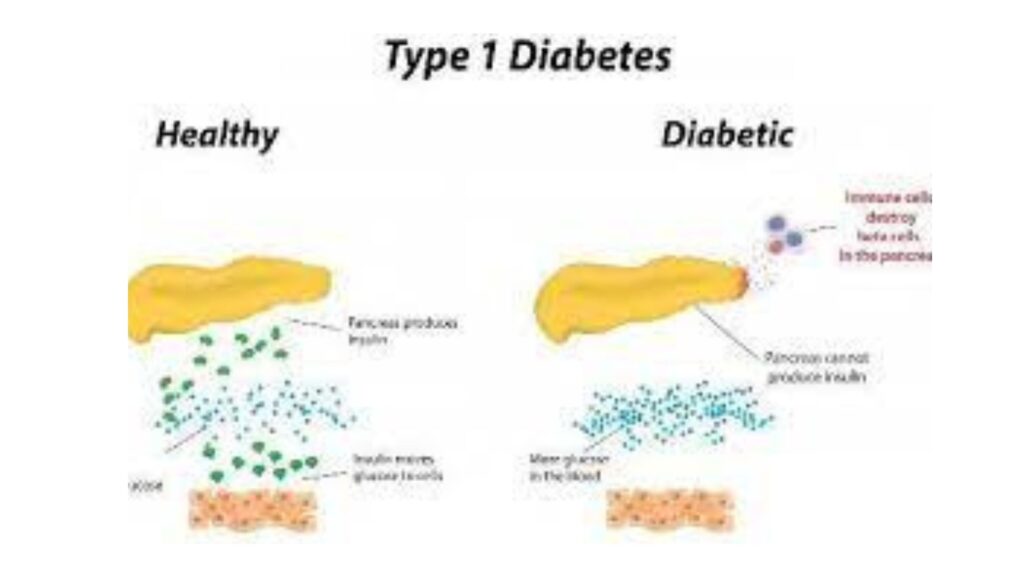What are autoimmune diseases in children?
Autoimmune diseases are a group of conditions that occur when the body’s immune system attacks its own healthy cells, tissues or organs. Symptoms vary among the various autoimmune diseases and can include many different symptoms. The most common autoimmune diseases in children are rheumatoid Arthritis, lupus, Addison’s disease, Psoriasis and type-1 diabetes.
Autoimmune conditions can affect any body part, but most affect joints and skin. Autoimmune diseases often begin when cells in your immune system attack your healthy tissue. The main feature of autoimmune disease is inflammation, which causes pain and swelling around certain joints and other body areas.
Type-1 diabetes

Type-1 diabetes is an autoimmune disease that develops when your body’s immune system attacks and destroys the insulin-producing cells in your pancreas. It results in a lack of insulin, which causes glucose levels to rise. Type-1 diabetes is called an “autoimmune” disease because it’s caused by the body attacking itself.
The resulting loss of insulin production leads to high blood glucose levels. If untreated, type 1 diabetes can lead to kidney failure, blindness, amputation and even death.
Celiac disease

Celiac disease is an autoimmune condition that causes damage to the small intestine when eating gluten, a protein found in wheat, barley, and rye. Gluten is unique because it’s the only food protein that triggers an immune response in people with celiac disease. Celiac disease symptoms include chronic diarrhea, abdominal pain, and malnutrition if undiagnosed or untreated.
The traditional treatment for celiac disease involves a lifelong gluten-free diet and sometimes medications that suppress the immune system.
Scleroderma

Scleroderma is an autoimmune skin disorder characterized by the thickening of skin tissues, joints, blood vessels and organs such as the heart or lungs. It can cause adverse reactions such as inflammation of internal organs like the liver or lymph nodes; inflammation of hands and feet; restricted movement; fatigue; joint pain; eye problems such as dry eyes.
Scleroderma is an autoimmune disorder that causes thickening (scleroderma) or hardening (hardening) of tissues throughout your body, including skin, muscles, tendons and internal organs. It’s most commonly known as a connective tissue disorder.
Lupus

Lupus is an autoimmune disease that causes inflammation in various body parts. It can cause many symptoms, including fever, fatigue, joint pain, and skin rashes. People with lupus who get medical and preventive care at the earliest can significantly improve function and quality of life. It can’t be diagnosed easily. Sometimes it may take even years to find out about its symptoms.
Signs would be unexpected high body temperature, fatigue and hair loss which occurs in any other disease, too, so proper lab tests at the right time could help to get the proper treatment.
Addison’s disease

Addison’s disease is one of the most common autoimmune diseases in children. It is also known as adrenal insufficiency. It causes the adrenal glands not to produce enough hormones to maintain life processes. Several factors can cause Addison’s disease, but a genetic defect in the immune system often causes it.
This condition can cause severe health problems and even death if not treated properly. Some symptoms can indicate if someone has Addison’s disease, such as a general feeling of being unwell, feeling tired or weak all the time, weight loss or gain (usually loss), vomiting and nausea, muscle weakness or pain, feeling feverish without a fever being present, and changes in skin color (pale or dark).
Kids with Addison’s disease do not have any different symptoms than adults with this condition do. The only difference is that kids will have more trouble telling you how they feel because they may not know how to express themselves in words—symptoms of Addison’s disease in teens. Many teens won’t even know they have this condition because they may not be experiencing any symptoms, which means that your teen needs to be checked out by their doctor so they can get treatment.
Suppose you notice any of the following symptoms in your teen. In that case, it could mean that they might have Addison’s Disease: Must have a certain number of hours of sleep every night; extreme fatigue that does not improve with sleep; always feels cold, even in hot weather; quickly become chilled without warning or reason as to why it happens Irritability, anger, irritable mood swings and depression during the day.
Psoriasis

Psoriasis is a chronic autoimmune skin infection that causes rashes and silvery scales. The treatment differs from creams to light therapy, depending on the infection. It occurs for both children and adults. It is one of the most common autoimmune diseases in children. The symptoms should not be ignored in the early days. A doctor should treat it as soon as possible. It can’t spread through touch to another person.
Hepatitis

Autoimmune hepatitis is commonly known as autoimmune liver disease. It occurs when the body’s immune system attacks viruses and bacteria and targets only the liver. It can b controlled for a certain period with the help of steroids. A person with this kind of disease has less survival rate. Research says these kinds of diseases are due to genetic factors.
Autoimmune thyroiditis (AT)

It is an autoimmune disease that attacks thyroid glands and their hormones like T3, T4 and TSH by producing particular antibodies. Like other autoimmune diseases, this also can’t be prevented, but fortunately, it is treatable. It is also known as Hashimoto’s thyroiditis.
Henoch-Schonlein purpura (HSP)

Henoch-Schonlein purpura is also known as IgA vasculitis. It is a disorder that causes the small blood vessels in your skin, joints, intestines and kidneys to inflame and bleed. It causes rash generally in the buttocks and lower legs. Rarely it causes severe kidney disorders.
Juvenile arthritis (JA)

JA occurs generally in children. It affect the joints commonly in knees, hand and feet. This type of arthritis causes joint swelling, pain and loss of motion. It is hard to diagnose. The first sign of this disease is limping in the morning. Medicines and physical therapy can help to get cure from this disease.

Pingback: Down syndrome - causes and facts - Why down syndrome?